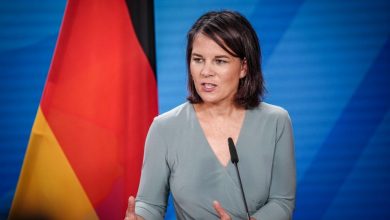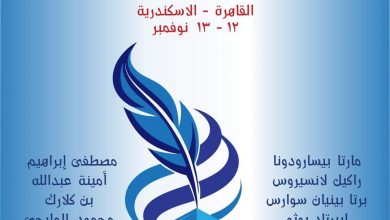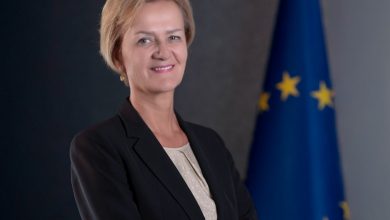Dr Ahmed Ghoneim: A Journey of Dedication to Egyptian Civilisation and the Grand Egyptian Museum

Appointment as CEO of the Grand Egyptian Museum
Dr Ahmed Ghoneim, the outgoing CEO of the National Museum of Egyptian Civilisation (NMEC), recently announced his appointment as the new CEO of the Grand Egyptian Museum (GEM) via his social media platforms. This comes after an illustrious career at NMEC, spanning four years of tireless efforts dedicated to preserving and promoting Egypt’s rich cultural heritage.
A Farewell to the National Museum of Egyptian Civilisation
In an emotional message, Dr Ghoneim expressed his gratitude to those who supported him throughout his tenure at NMEC. He stated, “I cherished every moment of serving Egypt from this institution. I have built a new family—my family at the museum—whom I hold in the highest regard and affection.” He extended his best wishes to his successor, emphasising the importance of maintaining the museum’s success and growth in the years to come.
His Legacy at the National Museum of Egyptian Civilisation

Dr Ahmed Ghoneim: Transforming the National Museum of Egyptian Civilisation into an International Diplomatic and Cultural Hub

Dr Ahmed Ghoneim, CEO of the National Museum of Egyptian Civilisation (NMEC), has made tremendous efforts to establish the museum as a prominent centre for international diplomatic and cultural events. Through a series of strategic initiatives that connected Egypt’s cultural heritage with global relations, he successfully transformed NMEC into a major platform for cultural diplomacy. Below are the key steps he implemented to achieve this:
1. Hosting International Diplomatic Events

Under Dr Ghoneim’s leadership, NMEC became a prime venue for hosting international diplomatic events, such as conferences and forums that brought together diplomats and global leaders. These events helped strengthen ties between Egypt and other countries by using Egypt’s rich heritage as a bridge for cultural exchange.
Numerous official delegations and diplomatic missions have visited the museum, providing them with the opportunity to experience Egypt’s civilisation exceptionally, fostering strong cultural relationships with the visiting nations.
2. Organising Exclusive Diplomatic Tours
Dr Ghoneim arranged exclusive tours for diplomats and official guests, offering them a personalised experience in the museum’s galleries. These tours highlighted artefacts that carry significant cultural and historical meaning, turning NMEC into a preferred destination for official visits and deepening diplomatic and cultural engagement between Egypt and the world.
Private diplomatic events were also held at the museum, showcasing the grandeur of ancient Egyptian achievements alongside discussions on contemporary international relations.

3. Collaborating with Foreign Embassies
Dr Ghoneim worked closely with foreign embassies in Egypt to host collaborative events. For instance, joint exhibitions and seminars were organised, spotlighting various civilisations in a cultural exchange context.
These events bolstered cultural and diplomatic bonds with many nations, making NMEC a hub for exchanging cultures and presenting Egyptian heritage within an international framework.
4. The Royal Mummies Parade as a Global Diplomatic Event
One of the most significant diplomatic achievements under Dr Ghoneim’s leadership was the Royal Mummies Parade. This historic event saw the transfer of 22 royal mummies from the Egyptian Museum to NMEC in a spectacular procession. It was not just a cultural event but a global diplomatic occasion that drew the attention of countries and embassies worldwide.
Many international diplomatic figures were invited to witness the event, creating an opportunity to promote Egypt’s cultural ties with other nations and demonstrating that NMEC can serve as a top-tier platform for cultural diplomacy.
5. Forming Partnerships with International Institutions

Dr Ghoneim led efforts to establish international partnerships with global museums and cultural institutions, enabling NMEC to host joint exhibitions and events that fostered cultural and diplomatic cooperation between Egypt and other nations. These collaborations made NMEC a key destination for international cultural gatherings.
Diplomats and representatives from various countries participated in temporary international exhibitions held at NMEC, further reinforcing the museum’s role as a diplomatic centre.
6. Positioning NMEC as a Gateway for Egyptian Cultural Diplomacy
Dr Ghoneim utilised NMEC as a tool to strengthen international cultural relations by hosting events that combined Egypt’s heritage with national celebrations of other countries. For instance, NMEC hosted cultural days for various nations, where Egyptian heritage was displayed alongside the heritage of the participating countries, fostering an atmosphere of mutual cultural appreciation.
These cultural exchange events solidified NMEC’s status as a diplomatic platform, enabling the exchange of ideas, traditions, and customs between different nations.

7. Promoting Cultural Tourism on an International Scale
Through promoting NMEC as a premier destination for international visitors, and in collaboration with relevant ministries, Dr Ghoneim helped boost cultural tourism, a powerful diplomatic tool. Diplomatic visits to the museum, whether as part of official events or as part of tourist delegations, enhanced Egypt’s cultural image on the global stage.
8. Hosting International Conferences and Seminars
Dr Ghoneim organised and hosted numerous international conferences and seminars at NMEC, focusing on topics related to cultural heritage, archaeology, and cultural cooperation. These events not only brought together academics and experts but also served as a platform for diplomatic discussions on heritage preservation and knowledge exchange.

9. Diplomatic Celebrations of Egyptian Achievements
NMEC hosted several diplomatic celebrations organised in collaboration with government bodies and international embassies, highlighting Egypt’s historical and contemporary achievements. These events provided a platform to strengthen Egypt’s diplomatic ties with other nations by showcasing its shared cultural heritage.
10. Welcoming International Visitors from Global Organisations
Thanks to NMEC’s collaboration with international organisations like UNESCO and cultural heritage bodies, the museum became a key destination for international delegations seeking to explore Egypt’s rich history. This collaboration contributed to advancing diplomatic dialogue on cultural and heritage-related issues.
Through these concerted efforts, Dr Ahmed Ghoneim successfully positioned the National Museum of Egyptian Civilisation as a global cultural hub and a centre for international diplomatic events. His work has significantly enhanced Egypt’s reputation as a nation that bridges historical heritage with modern international relations, fostering dialogue and cooperation across cultures.
Dr Ahmed Ghoneim’s Biography
Name: Dr Ahmed Ghoneim
Education:
- PhD in Economics from the University of Manchester, UK
- Master’s Degree in Economics from Cairo University
Professional Background:
- CEO of the National Museum of Egyptian Civilisation: During his tenure, Dr Ghoneim elevated the museum to become one of Egypt’s foremost cultural institutions, while expanding its global reach and influence.
- Professor of Economics at Cairo University: As a prominent academic, Dr Ghoneim has taught and published extensively in the fields of economics and development, gaining a reputation for his intellectual leadership.
- Economic Consultant: He has also worked as an advisor on numerous large-scale economic projects, providing expert guidance on improving economic performance across various sectors.
Skills and Expertise:
- Proven leadership in managing major cultural institutions.
- Extensive academic knowledge in economics and development.
- Strong ability to build international partnerships and foster diplomatic relations through cultural initiatives.
Key Achievements
- Leadership at NMEC: Dr Ghoneim successfully transformed NMEC into a global platform not only for showcasing Egypt’s heritage but also as a diplomatic tool to strengthen cultural ties with other nations.
- Boosting Cultural Tourism: He played a pivotal role in making NMEC a premier destination for cultural tourism in Egypt, significantly increasing international visitor numbers and promoting Egypt’s cultural image abroad.
- Enhancing International Relations: Through his vision, NMEC became a focal point for international diplomatic visits, helping to fortify Egypt’s cultural and diplomatic relationships with other countries.
Challenges Ahead at the Grand Egyptian Museum
Leading the Grand Egyptian Museum, one of the largest and most anticipated museums in the world, presents a new and exciting challenge for Dr Ghoneim. He is expected to bring the same level of dedication and vision to GEM that he demonstrated at NMEC, focusing on curating world-class exhibitions, expanding international partnerships, and positioning GEM as a global centre for heritage and culture.
Dr Ahmed Ghoneim’s Vision for the Grand Egyptian Museum
Upon his appointment, Dr Ghoneim outlined his vision for the future of GEM, stating his ambition to establish it as a world-class centre for Egyptian culture and heritage. He aims to create a beacon of knowledge and cultural exchange that will preserve Egypt’s treasures while fostering international collaboration. His leadership is set to drive the museum’s role in continuing Egypt’s cultural legacy on a global scale.
Dr Ahmed Ghoneim’s career is a testament to his unwavering commitment to preserving and promoting Egypt’s ancient civilisation. As he transitions to his new role at the Grand Egyptian Museum, his legacy at NMEC remains a shining example of how dedication to culture can bridge nations and inspire future generations. His new chapter promises to further elevate Egypt’s standing in the global cultural arena, continuing his journey of excellence and leadership.



